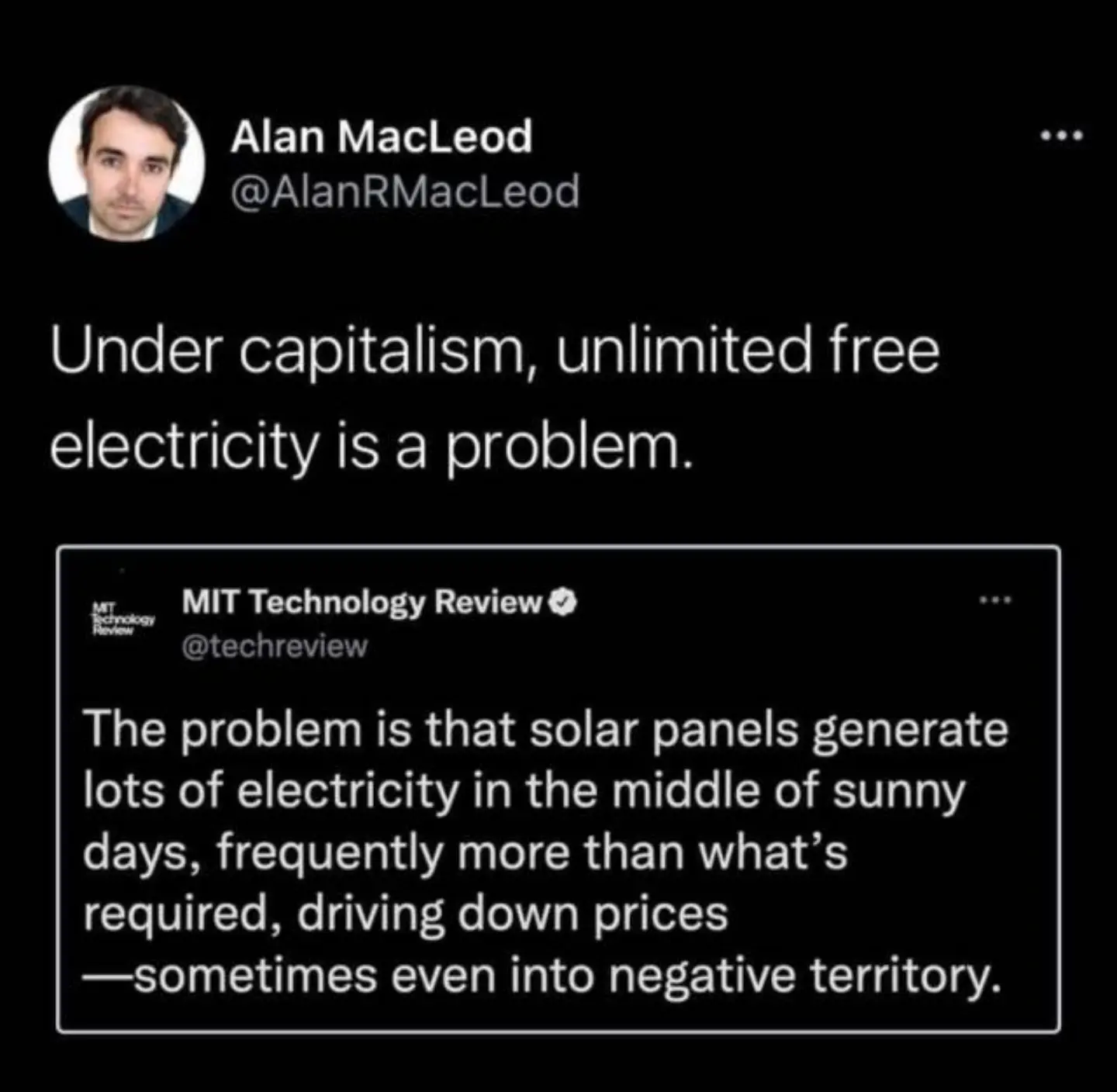this post was submitted on 09 Apr 2024
1657 points (96.0% liked)
Solarpunk
5653 readers
76 users here now
The space to discuss Solarpunk itself and Solarpunk related stuff that doesn't fit elsewhere.
Join our chat: Movim or XMPP client.
founded 2 years ago
MODERATORS
you are viewing a single comment's thread
view the rest of the comments
view the rest of the comments

To be fair, having a mismatch between when energy is available and when it is needed is going to be a problem under any economic system, since it's a fundamental inefficiency that must be worked around with additional effort and resources
Enter nuclear fusion… unlimited energy always and forever.
It's pretty easy to imagine fusion being great - but it's still just in our imaginations. No one has yet been able to build a working fusion power plant. There has been progress over the decades that people have tried, but its still a way to go yet. So although we can imagine that it could produce clean and plentiful energy, we just comparing sci-fi tech to current tech. The future reality might not be so great, and the current reality is that fusion power isn't possible at all.
To illustrate my point, lets imagine solar power from a 'theoretical' point of view, like fusion is described. Solar power uses no fuel; gets its power from sunlight. There is enough energy coming from the sun to meet the whole world's energy needs with just reality small amount of area. Solar power produces no waste biproducts... So if we just imagine the benefits of solar power, it sounds pretty much perfect. In in reality though, although solar is very good, it is still far from perfect. Construction, maintenance, and disposal of the panels are where the costs are. And so to compare to fusion, we'd need to know what it would take to build, maintain, and disposal of the fusion power plants. Currently we can't do it at all - so the costs are basically infinite. But even if our tech improves to the point where it is possible... it's hard to imagine it will be easy or cheap - especially because there will be radioactive waste. (Radioactive waste not from the fuel, but from the walls and shielding of the reactor, as it absorbs high-energy particles produced by the operation of the power plant.)
Every previous adoption of technology has taken - what, 50 years? - between having the technology and being set up to make use of it. Gasoline did not immediately have car engines to put into, nor kerosine a whole city's worth of lamps set up to receive them, etc.
Though at first, if fusion could power up the existing electrical grid then it could e.g. make electrical cars more efficient in the net/overall sense, even if vehicles operating directly on fusion power themselves would take many more years. So fusion really might be different than those that came before, if we are anticipating and more ready for it than previous technical advances?
Though yeah, it will have its own challenges e.g. the radioactive wastes, so fusion would not begin to replace greener energy approaches such as solar, wind, and geothermal, only perhaps supplement them.
afaik, this isn't a thing for nuclear fusion. fission, to a very limited degree. yes, but fusion, no, not really.
Not for the direct reaction itself but I thought there was something about spraying the container down or some such... I am probably entirely BSing here:-). In any case, whenever someone figures out a method to make it practical, then we'll see whatever downsides there may be to that:-P.